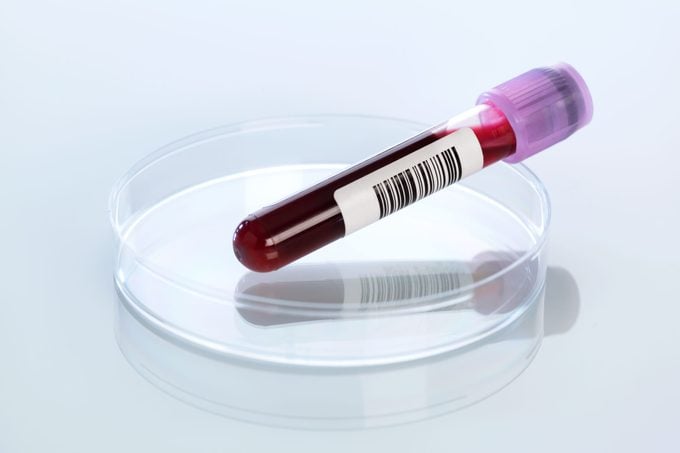This New 1-Minute Test Can Determine Heart Attack Risk in the Next 6 Months
Updated: Feb. 27, 2024

Plug a few simple details into this online tool to help evaluate your risk of heart attack and gain proactive insight to your cardiovascular health.
In the United States, heart attacks, which are clinically known as myocardial infarctions, affect approximately 805,000 Americans each year according to data from the Centers for Disease Control and Prevention (CDC). In the fortunate instance when an impending heart attack is detected before it occurs, this is often due to a good catch by, say, a primary care physician, who may pick up on symptoms or spot a red flag in blood work as part of a routine checkup.
A team Swedish researchers recognized that heart attacks are “a leading cause of death globally but [one that’s] notoriously difficult to predict” and responded by undertaking research, which led to the development of a compelling new heart attack predictor model that takes around a minute to complete if you know your cholesterol values.
Johan Sundström, MD, PhD, the study’s lead author, cardiologist, and professor of epidemiology at Uppsala University in Sweden pointed out the crucial months leading up to a heart attack, sharing in a press release: “We know that the time just before a heart attack is very dynamic. For example, the risk of a heart attack doubles during the month after a divorce, and the risk of a fatal heart event is five times as high during the week after a cancer diagnosis.”
Their goal was to identify biomarkers, or specific indicators in the body, that can signal the looming threat of a heart attack, thereby leaving room for early intervention and potentially life-saving measures. The findings, published in the peer-reviewed journal Nature Cardiovascular Research in February 2024, introduce a simple blood test and online tool that can predict heart attack risk within six months, helping individuals gain this critical information before it’s too late.
Understanding heart attack risk
The researchers analyzed blood samples from more than 169,000 individuals across six European cohorts, all with no prior history of heart disease. Within six months after this analysis, 420 participants experienced their first heart attack.

By comparing the blood of individuals who experienced a heart attack with those who remained healthy, the study identified key markers—48 proteins, 43 metabolites, and clinical factors like age, gender, and blood pressure—that were indicative of an elevated risk for heart attacks.
Notably, the Brain Natriuretic Peptide protein was identified as a significant heart attack predictor. This peptide can be identified with a relatively simple blood test.
Additionally, this research has culminated in developing an accessible online tool that allows individuals to assess their heart attack risk within the next six months. Some of the data you will need are:
- your HDL and LDL cholesterol levels
- height
- waist circumference
Be prepared to convert inches to centimeters for these physical measurements. You’ll see the tool adjust to display what the researchers say is just an estimate of your risk after you input your personal facts and the requested metrics.
No tool is as promising as care directly from a licensed healthcare provider, so keep in mind this online test is not intended to diagnose or serve as a substitute for a medical visit. And, if you feel any concern about a heart attack, seek medical attention.
The researchers caveat any sweeping takeaways, saying, “this prediction model was developed in a population of mostly middle-aged European individuals and how it performs in other populations is unknown.”
Dr. Sundström hopes that by making information about heart attack risk readily available, people will be more inclined to adopt preventive measures. “This was one of the aims of the entire study since we know that people [may] feel relatively low motivation to follow preventive treatments,” he explains. The research team says they’re committed to further investigating these biomarkers to enhance their understanding and explore potential treatment options.
For heart-healthy updates delivered to you daily, subscribe to The Healthy @Reader’s Digest newsletter and follow The Healthy on Facebook and Instagram. Keep reading:




















